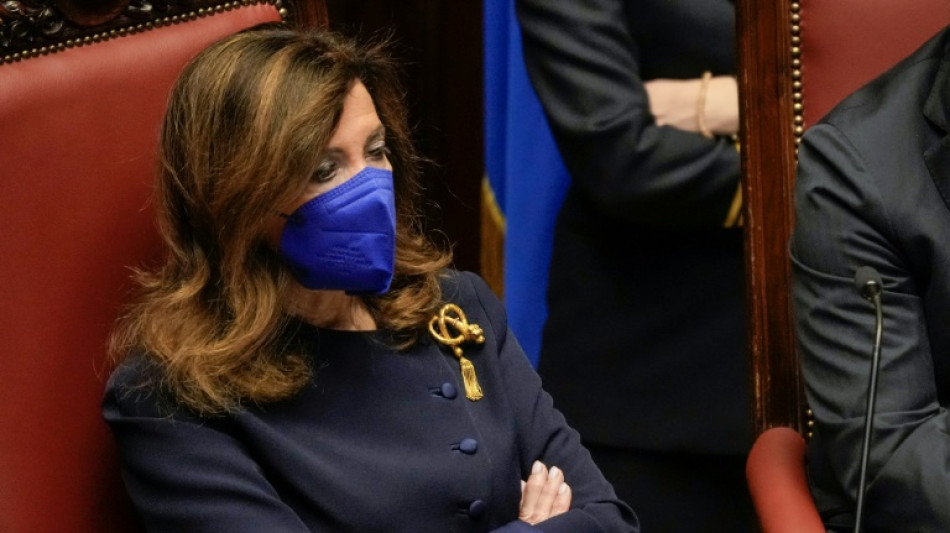
Italy speeds up presidential vote but deadlock persists

Italy on Friday sought to accelerate the process of electing a new president after days of deadlock that has paralysed Prime Minister Mario Draghi's government, but parliament remained bitterly divided.
Four rounds of voting since Monday have failed to produce anything close to a winner, with most lawmakers casting blank ballots or abstaining due to a lack of agreement between the parties.
The fifth round went ahead as planned at 11:00 am (1000 GMT), but political leaders agreed to add another at 5:00 pm, and thereafter two a day for as long as needed.
Due to coronavirus restrictions, parliament had initially scheduled only one round of voting per day.
The presidential vote -- which with its secret ballots and back-room deals is often compared to a papal conclave -- risks deepening fractures within the national unity government that has led the eurozone's third-largest economy with remarkable unity for 11 months.
On Friday, the right-wing bloc in parliament, including Matteo Salvini's League party and Silvio Berlusconi's Forza Italia, finally put forward a candidate, Senate president Elisabetta Casellati.
But as a Berlusconi loyalist known for her opposition to abortion and same-sex unions, she is controversial and unlikely to secure the required majority of votes.
Former premier Berlusconi, who abandoned his own unlikely candidacy at the weekend but has since been in hospital, ostensibly for checks, vouched for her "absolute suitability".
"I appeal to parliamentarians on all sides to ask them to support Casellati," the 85-year-old said in a statement.
But the so-called centre-left bloc, including the Democratic Party and the populist Five Star Movement, decried a "serious error" of choice and boycotted the morning vote.
"The solution is an impartial name we all agree on," Five Star leader and former premier Giuseppe Conte told reporters.
- Draghi benefits? -
Draghi, a former European Central Bank chief brought in to lead the government almost a year ago, remains in the running to be elected the new head of state.
There is widespread concern his departure as prime minister could destabilise the government at a critical time and even spark snap elections -- which few parties want.
But "as the stalemate continues and the political backdrop becomes more toxic, the main beneficiary could end up being either Mario Draghi or (outgoing) President Sergio Mattarella", noted Wolfango Piccoli of the Teneo consultancy.
Mattarella, 80, secured the largest number of votes in Thursday's round of voting, despite repeatedly saying he will not renew his seven-year term.
Debt-laden Italy is recovering from a 2020 pandemic-induced recession but is banking on almost 200 billion euros ($222 billion) in EU funds to cement the trend.
This money is in turn dependent on a tight timetable of reforms -- notably to the tax and justice systems, and public administration -- that many fear will be derailed without Draghi's hand on the tiller.
However, there are fears that the fractures in the coalition caused by the presidential vote -- already showing as parties gear up for elections in 2023 -- will prove irreparable.
The president is a ceremonial figure but wields great power during political crises -- frequent events in Italy, which has had dozens of different governments since World War II.
The vote for the presidency is carried out in parliament among more than 1,000 MPs, senators and regional representatives.
B.Cooper--TNT